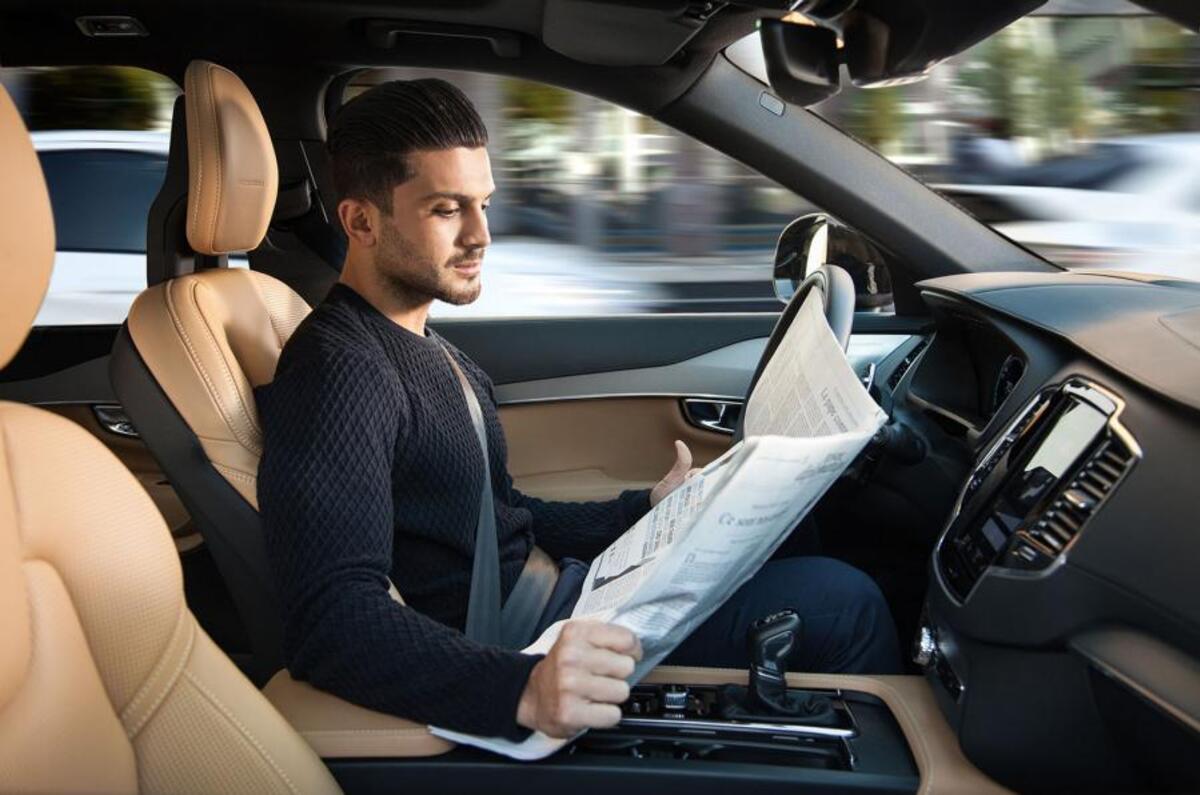If I pulled out now, I’d die. If I pulled onto this road, in front of this lorry, things would get extremely awful, extremely quickly. It’s a situation I find myself in pretty much every morning.
At least as frequently, I’m in the reverse situation: if somebody else pulls out in front of me, one or both of us will be in a perilous state.
It’s fine. They’ve never pulled out on me, and neither have I on them, but every day in this country, something unspeakably horrible like it happens. A moment’s lapse of concentration, someone looks but doesn’t see, and lives are ruined, or ended, because it was assumed, as a result of half an hour’s vague assessment perhaps 30 years ago, that a driver was safe to handle two tonnes of vehicle at anything up to 70mph. And if they aren’t? Well, that’s life.
Of course, it’s not going to happen to me, just like it’s not going to happen to you, and it wasn’t going to happen to all the people to whom something horrendous has already happened, or is today, or will tomorrow, where bad choices are made and terrible consequences are felt.
It can’t, and won’t, go on like this. In the same way that it was once fine to smoke where you liked, like it was once fine to be penned in at a football match, and like it was considered a spot of bad luck in some heavy industries if you went to work one morning and your family never saw you again, that was then and this is now. There is no reason why travelling from one place to another should be any different: the world gets safer, people live longer and risks get smaller.
And it seems to me that the business of driving – which has been getting safer mostly by virtue of the fact that the boxes we travel in are better built than ever – is on the cusp of a step change enabled by communications technology. For years, legislators, car makers and you and I have wanted roads to be safer and relied on making our boxes safer to crash in order to get there. For the first time, it’s possible to see a way where that becomes a secondary concern – to imagine a target of zero road deaths by ensuring that cars and roads regulate how each vehicle behaves.
Not everywhere, perhaps. Not given the vastness of the road network, the myriad of tiny country lanes, and the randomness and complexity of road users' behaviour. But on motorways and regulated roads in towns, it’s conceivable to imagine a target of zero road deaths, by ceding control to machines.
Trouble is, at the moment, not even radar cruise control can look after a car’s trajectory any better than you or I. So I can’t imagine it happening soon. But, then, when I was nine, I couldn’t imagine anything more sophisticated than Donkey Kong.
More autonomous car news:







Join the debate
Add your comment
Never have to drive AGAIN!
The presumption behind the
90% of road deaths are driver error
I absolutely agree that 'zero deaths' is unrealistic, but that's what the target needs to be. It's much like motorsport – the FIA's target is that there should be no fatalities, but it can never really be achieved. However, every fatality is now thoroughly analysed to inform future decisions, rather than simply accepting it as an inevitability. If the same approach is used on road cars, we will get as close to zero as possible.
Forget the headline
It won't go from today's figure to "zero" immediately, but there will be noticeable reductions, and the number of fatalities will continue to reduce over time as the number of autonomous vehicles increases and the number of manually-driven vehicles decreases.
There will be problems to overcome. Errors will be made, and it's highly likely that fatalities will result from the machines making mistakes (or, more accurately, the humans who programmed the machines not envisioning a certain scenario which meant the machine didn't know how to act when it mattered).
Personally, I would trust thousands of (for example) Daimler engineers over some overworked/undertrained minicab driver in a Mercedes-Benz E-Class when it came to making the best judgment on avoiding an accident.